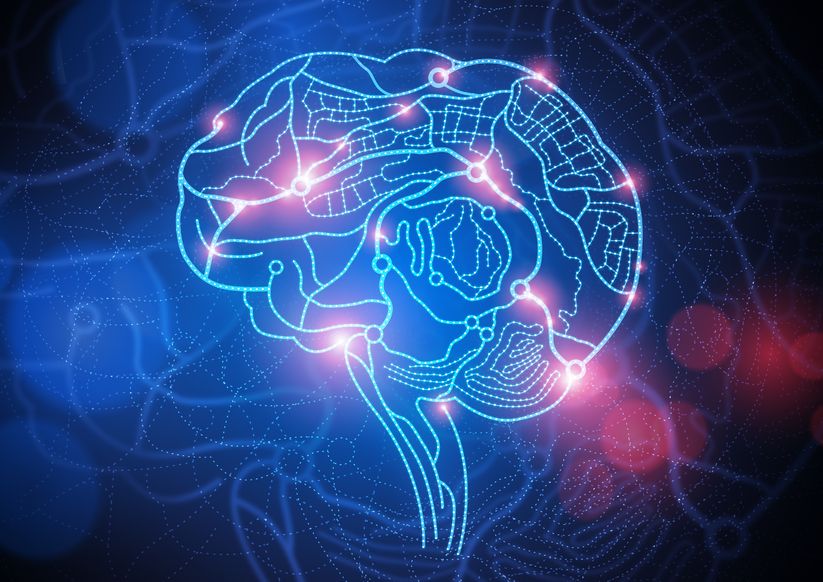Getting older can be unnerving! Just when you get the hang of the physical changes that are taking place in your body, all of a sudden, a new challenge arises—a shift in cognitive function.
This shift may be scary because cognitive function is what you rely on to:
- Think clearly
- Learn
- Remember
- Get through your day
If you are here, then the chances are you or a loved one is experiencing cognitive issues. And, you need help understanding why and what you can do about it.
What Is Cognitive Function?
Cognitive functioning refers to multiple mental abilities, including:
- Learning
- Thinking
- Reasoning
- Remembering
- Problem-solving
- Decision making
- Attention
Proper cognitive function is essential for the quality of life. And when it begins to fail, your ability to learn, use language, memory, and even judgment is affected.
Why Does Cognitive Health Decline?
Cognitive decline is usually associated with aging. However, various imbalances and deficiencies can also bring it on.
Various factors can affect how your mind functions:
- Lifestyle choices
- Environmental toxins
- Genetics
When left unattended, these behaviors and factors may contribute to a decline in your cognitive health.
Providers associate these three types of cognitive decline with aging.
- Mild memory impairment that occurs with normal aging.
- Amnestic mild cognitive impairment (MCI)—the signs of this type of mild memory loss include forgetting important events, misplacing things, and having difficulty coming up with the right words
- Dementia and Alzheimer’s disease—this type of memory loss is progressive, chronic, and irreversible and is severe enough to affect daily functioning.
Providers also associate cognitive issues with hormonal fluctuations. For example, around 66% of women complain of forgetfulness or “brain fog” during menopause that is linked to fluctuating levels of hormones in the brain.
What Are the Risk Factors Researchers Associate With Cognitive Decline?
Researchers have identified the following as common risk factors for cognitive decline.
- Increased age
- Lack of mental activity
- Having APOE-e4, a gene linked to Alzheimer’s disease
- Malnutrition
- Substance use and abuse, including:
- Lack of physical exercise
- Medical conditions:
- Lack of involvement in social activities
- Chronic stress
What Are the Signs of a Decline in Cognitive Health?
Warning signs of cognitive disorders vary depending on the specific disorder, but many symptoms overlap and act as a red flag for cognitive decline.
Some of the most common symptoms include:
- Confusion
- Identity Confusion
- Impaired Judgement
- Loss of Short-Term or Long-Term Memory
- Poor Motor Coordination
What Can Be Done to Prevent or Slow Cognitive Decline?
If you aren’t experiencing cognitive decline signs but want to prevent it and keep your cognitive functions working at their best, you can take these steps.
1. Revitalize Your Mind
Play games or do puzzles that flex:
- Your memory
- Vocabulary
- Speed
2. Activate Your Social Life
Researchers found a limited social network can be a risk factor for dementia. Find ways to maintain social connections and participate in social activities is advised.
3. Learn Like a Kid
Never stop learning new things!
Leisure activities like the following may decrease the risk of dementia:
- Reading
- Books
- Newspapers
- Magazines
- Playing games
- Cards
- Checkers
- Crossword puzzles
- Playing musical instruments
- Going to museums
- Exploring new hobbies
4. Exercise
Exercise may contribute to cognitive vitality by improving mood and reducing stress. Although research is still underway, studies suggest that engaging in physical exercise, including enjoyable leisure activities, may help prevent decline. Researchers advise many of these activities may improve cognitive functioning in older adults.
What If You Are Already Experiencing Issues?
Do you have concerns that you or a loved one has cognitive issues? We use the functional medicine approach to determine the underlying cause to treat the big picture rather than focus on a few symptoms.
At LivingWell Dallas, we offer a full diagnostic screening process, including:
- Cognitive testing
- Functional (QEEG) brain mapping, which shows the actual functioning in your brain areas
Our staff takes a holistic approach and is trained in the Bredesen Protocol and other treatments.
What Is Cognitive Testing?
Cognitive testing checks for problems with your cognitive functions.
Also, most tests involve:
- Answering a series of questions
- Performing simple tasks designed to help measure mental functions, like your:
- Memory
- Language capacity
- Ability to recognize objects
What Is Brain Mapping?
Brain mapping measures records and analyzes electrical activity in your brain and compares it to normative or average values.
It’s called brain mapping because the brainwave data retrieved creates a detailed picture of how your brain functions relative to normative databases.
How Is Brain Mapping Used?
A brain map shows how each part of your brain functions under a variety of conditions. For example, the precise measurement of brain waves reveals the brain areas that are functioning optimally and those that are not.
We use brain mapping as a diagnostic tool that helps determine the most efficient and effective treatment plan.
What Is the Bredesen Protocol?
The Bredesen Protocol has two protocols:
- PreCODE (for prevention)
- ReCODE (for reversal)
A Revolutionary Approach
Using Dr. Bredesen’s 30 years of study, he developed the protocol during which he found Alzheimer’s results from an imbalance in the brain’s neuroplasticity signaling.
And, he identified over 36 factors that can trigger “downsizing” in the brain. So, using the Bredesen Protocol, Living Well Dallas can address all of these factors!
If you or a loved one has experienced a decline, schedule a consultation with our team of experts today! Lastly, together we’ll collaborate on the best path forward that meets your unique needs while addressing your concerns.


